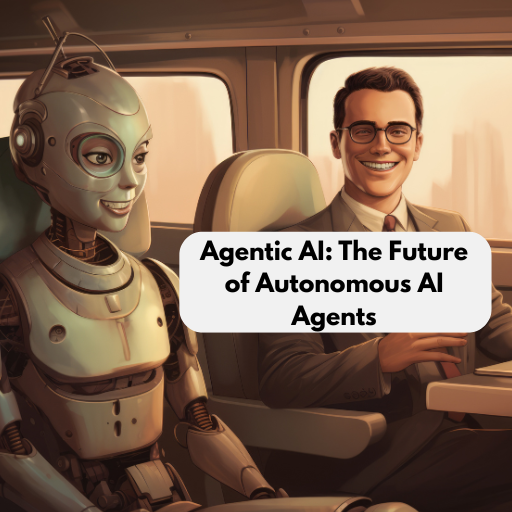What is Agentic AI?
Agentic AI refers to artificial intelligence systems that act like independent agents. They don’t just wait for commands—they take action on their own to achieve goals. These systems can plan, make decisions, and complete tasks with minimal human involvement.
A Simple Example
Think about how Siri or Alexa works. You might say, “Set a timer,” and it does that one simple task.
Now imagine saying, “Plan my week, book meetings, write emails, and send reminders to my team.” A standard assistant wouldn’t know what to do.
But an Agentic AI would respond, “I’ve checked your calendar, scheduled three meetings, drafted two emails, and sent reminders. Anything else?”
That’s the difference. Agentic AI understands your bigger goal and moves toward it on its own.
How Are Agentic AI Systems Different?
Compared to traditional AI, Agentic AI systems can handle multi-step goals without needing you to guide every move. They learn and adapt over time, while most traditional systems stay static.
For example, ChatGPT answers one question or task at a time. But AutoGPT can tackle a business problem from start to finish without new prompts at each step.
Real-Life Use Cases of Agentic AI
Marketing assistants like AutoGPT can create entire marketing plans, including research and content ideas.
Customer support agents don’t just answer questions—they can resolve tickets, escalate issues, or offer discounts on their own.
Project management tools such as ChatDev simulate teams of AIs, each with its own role like CEO, engineer, or designer, collaborating to finish software projects.
In e-commerce, Agentic AI recommends products, processes returns, and sends personalized offers—all without a person manually overseeing each step.
Tools That Use Agentic AI
AutoGPT automates long, complex tasks by working toward a goal.
ChatDev simulates entire teams by assigning different roles to AI.
AgentGPT lets you create your own AI agents with specific goals.
Microsoft Copilot is also expected to bring agentic logic into business apps soon.
Why Is Everyone Talking About It?
In 2025, Agentic AI is a hot topic because it changes AI from being a passive helper to a proactive partner. It’s not just answering you anymore—it’s predicting needs and handling them.
People love it because it saves hours by automating scheduling, research, and more. Companies are racing to build smart AI agents for customers and teams.
But Is It Safe?
With all this power, there are big questions. How do we keep control if AI can act independently? Will people trust a machine making decisions for them? What happens if it’s trained on biased data?
That’s why companies are adding guardrails—rules and limits that keep AI helpful and safe.
Agentic AI vs. ChatGPT
ChatGPT writes the email you ask for. Agentic AI like AutoGPT writes it, sends it, and schedules follow-ups.
If you need to book meetings, ChatGPT suggests what to book, while Agentic AI goes ahead and schedules them on your calendar.
Want to solve a coding problem? ChatGPT gives you a snippet. Agentic AI writes, tests, and fixes the code by itself.
What’s the Future of Agentic AI?
Agentic AI could soon power virtual employees who handle entire workflows. It might support doctors, teachers, and engineers by taking care of repetitive tasks.
Some experts predict we’ll even see fully autonomous companies staffed by AI. When combined with robotics, it could give machines the brains to plan, decide, and act—whether it’s for household chores or complex surgeries.
Final Thoughts
Agentic AI isn’t just another upgrade—it’s a huge leap. Instead of telling AI to do one task at a time, we’re entering a world where AI can understand your goals, figure out how to achieve them, and handle each step on its own. It’s like going from using a calculator to having a helpful coworker.
TL;DR
Agentic AI is AI that can work independently toward goals.
It thinks, plans, and acts—not just responds.
Early examples include AutoGPT and AgentGPT.
It’s already used in marketing, customer support, and automation.
In the future, we’ll see even more AI that works with us, not just for us.
If you want more simple, beginner-friendly guides on the future of AI, keep following AI for Mundane. We’ll keep breaking down complex tech into easy, useful insights for everyday life.






